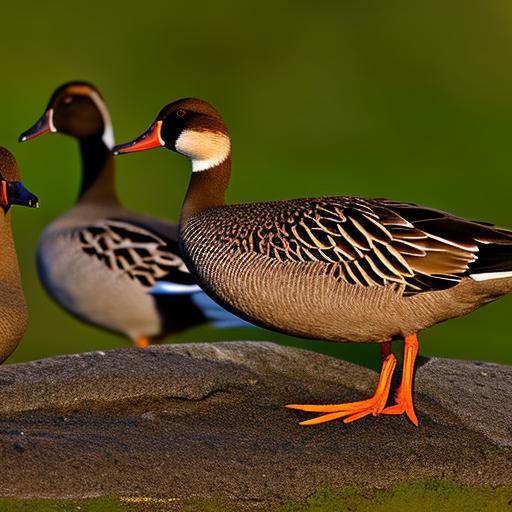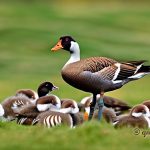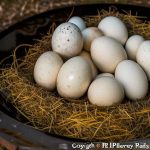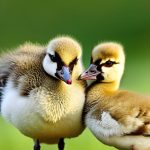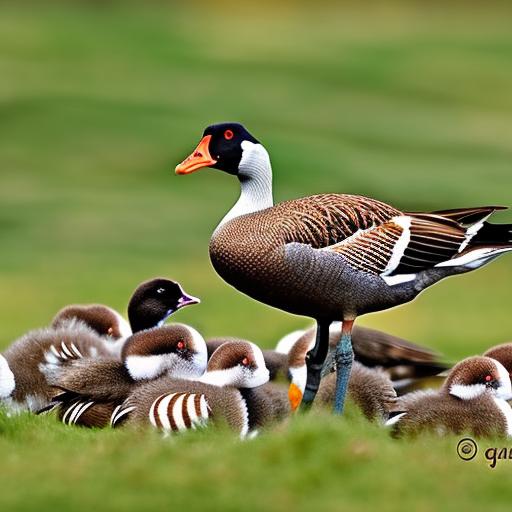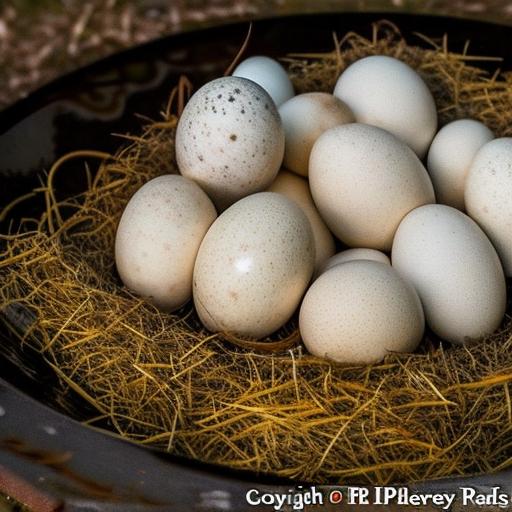Brown geese breeds are an important part of agriculture and poultry farming. They are known for their versatility and adaptability, making them a popular choice for farmers around the world. These breeds are valued for their meat and egg production, as well as their ability to control pests and weeds in agricultural fields.
Key Takeaways
- Brown geese breeds have unique characteristics that set them apart from other goose breeds.
- These breeds have a rich history and origin that dates back centuries.
- Physical appearance and coloration are important factors in identifying brown geese breeds.
- Proper habitat, feeding, and breeding practices are essential for the health and well-being of these birds.
- Brown geese breeds play an important role in agriculture and poultry farming.
Understanding the Characteristics of Brown Geese Breeds
Brown geese breeds are generally medium to large in size, with males weighing between 10-15 pounds and females weighing between 8-12 pounds. They have a calm and docile temperament, which makes them easy to handle and work with. These breeds are also known for their intelligence and ability to learn quickly.
The History and Origin of Brown Geese Breeds
The history of brown geese breeds can be traced back to ancient times. They were originally wild birds that migrated across different regions in search of food and suitable habitats. Over time, humans began to domesticate these birds for their meat and eggs. The exact origin of brown geese breeds is unclear, as they have been bred in various parts of the world.
Differentiating Brown Geese Breeds from Other Goose Breeds
Brown geese breeds can be differentiated from other goose breeds based on their physical characteristics and coloration. While there are many different types of brown geese breeds, they all share similar traits such as their size, temperament, and adaptability. They also have distinct features that set them apart from other goose breeds.
The Physical Appearance and Coloration of Brown Geese Breeds
Brown geese breeds have a unique physical appearance and coloration. They have a medium to large body size, with a long neck and a rounded head. Their feathers are typically brown or tan in color, with some variations depending on the specific breed. They also have a distinctive beak, which is usually orange or yellow in color.
Habitat and Environmental Requirements of Brown Geese Breeds

Brown geese breeds require a suitable habitat and environmental conditions to thrive. They need access to water for swimming and bathing, as well as shelter to protect them from extreme weather conditions. They are adaptable birds and can live in a variety of environments, including wetlands, grasslands, and agricultural fields.
Feeding and Nutritional Needs of Brown Geese Breeds
Brown geese breeds have specific feeding and nutritional needs to ensure their health and well-being. They require a balanced diet that includes a mix of grains, vegetables, and protein sources. They also benefit from supplements such as vitamins and minerals to support their growth and development.
Breeding and Reproduction of Brown Geese Breeds
Breeding and reproduction in brown geese breeds is a natural process that occurs when the birds reach sexual maturity. The female geese lay eggs, which are then incubated by either the female or male goose. The incubation period typically lasts around 30 days, after which the eggs hatch into goslings.
Common Health Issues and Diseases in Brown Geese Breeds
Like any other livestock, brown geese breeds are susceptible to certain health issues and diseases. Some common health issues include respiratory infections, parasites, and foot problems. It is important for farmers to provide proper care and regular veterinary check-ups to prevent and treat these issues.
The Role of Brown Geese Breeds in Agriculture and Poultry Farming
Brown geese breeds play a crucial role in agriculture and poultry farming. They are valued for their meat production, as their meat is lean and flavorful. They also lay large eggs that are used for consumption or hatching. Additionally, brown geese breeds are known for their ability to control pests and weeds in agricultural fields, making them an important asset for farmers.
In conclusion, brown geese breeds are a valuable asset in agriculture and poultry farming. They have unique characteristics, physical appearance, and coloration that set them apart from other goose breeds. They require specific habitat and environmental conditions to thrive, as well as a balanced diet to meet their nutritional needs. Breeding and reproduction in brown geese breeds is a natural process, and they are susceptible to certain health issues and diseases. Overall, brown geese breeds play a vital role in agriculture and poultry farming, making them an important part of the industry.
If you’re interested in learning more about brown geese breeds, you might also want to check out this informative article on when do guinea fowl lay eggs. Guinea fowl are fascinating birds that have their own unique breeding patterns and egg-laying habits. Understanding the reproductive cycle of guinea fowl can provide valuable insights for anyone interested in raising and breeding brown geese. So, take a moment to explore this article and expand your knowledge on poultry breeding.
FAQs
What are brown geese breeds?
Brown geese breeds are a group of domesticated geese that have brown feathers. They are commonly raised for meat, eggs, and as pets.
What are some examples of brown geese breeds?
Some examples of brown geese breeds include the Toulouse, Pilgrim, Buff, and African geese.
What is the size of brown geese breeds?
Brown geese breeds vary in size, but they are generally larger than other domesticated geese breeds. The Toulouse goose, for example, can weigh up to 30 pounds.
What is the lifespan of brown geese breeds?
The lifespan of brown geese breeds can vary depending on the breed and how they are raised. On average, they can live up to 10-15 years.
What is the temperament of brown geese breeds?
Brown geese breeds are generally calm and docile, making them good pets. However, they can become aggressive during breeding season or if they feel threatened.
What is the diet of brown geese breeds?
Brown geese breeds are herbivores and primarily eat grass, weeds, and other vegetation. They may also be fed commercial poultry feed and supplements.
What is the breeding season for brown geese breeds?
The breeding season for brown geese breeds typically occurs in the spring and summer months.
What is the egg-laying capacity of brown geese breeds?
Brown geese breeds can lay up to 50-60 eggs per year, depending on the breed and how they are raised. The eggs are typically larger than chicken eggs and have a thicker shell.
Meet Walter, the feathered-friend fanatic of Florida! Nestled in the sunshine state, Walter struts through life with his feathered companions, clucking his way to happiness. With a coop that’s fancier than a five-star hotel, he’s the Don Juan of the chicken world. When he’s not teaching his hens to do the cha-cha, you’ll find him in a heated debate with his prized rooster, Sir Clucks-a-Lot. Walter’s poultry passion is no yolk; he’s the sunny-side-up guy you never knew you needed in your flock of friends!

